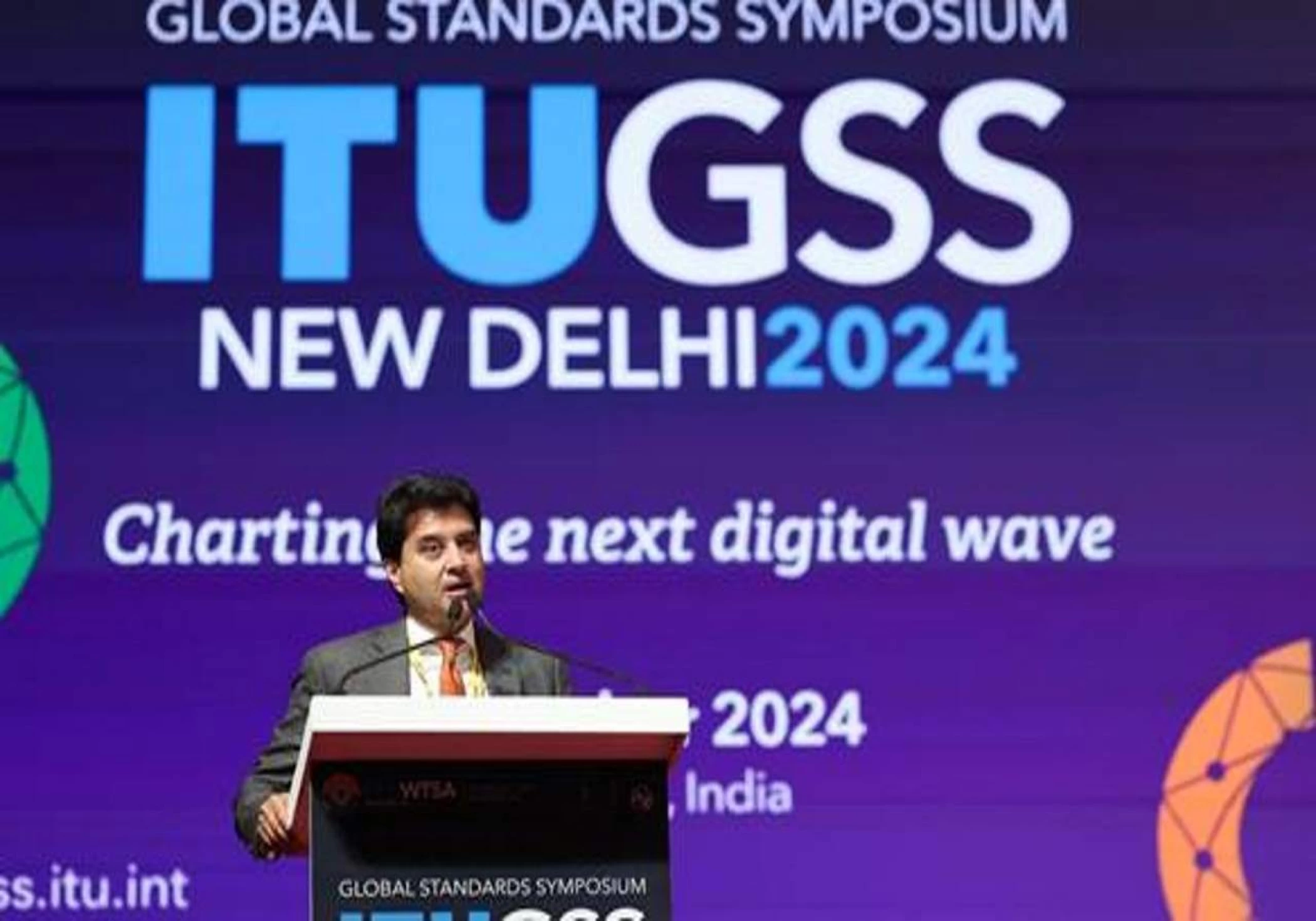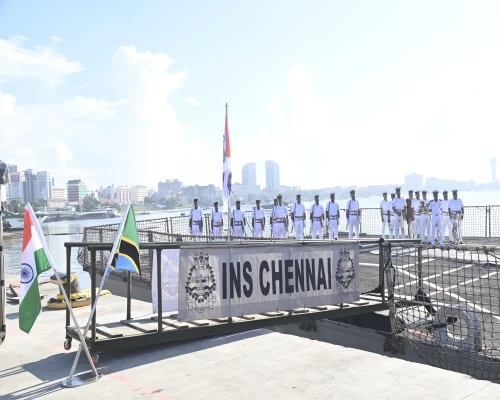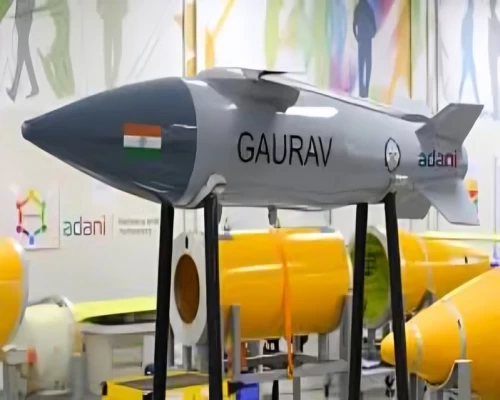
New Delhi: The Fifth Global Standards Symposium (GSS 2024), held for the first time in the Asia-Pacific region, concluded today in New Delhi. Organised by the International Telecommunication Union (ITU) and hosted by India's Department of Telecommunications, the event saw over 1,500 policymakers, innovators, and technology experts from across the globe come together to discuss the future of digital transformation and the role of international standards in shaping emerging technologies.
During the closing ceremony, Minister of State for Communications and Rural Development, Chandra Sekhar Pemmasani, highlighted India’s significant strides in the global digital landscape, attributing this transformation to the leadership of Prime Minister Narendra Modi. He emphasised the importance of inclusive and democratic international standards, calling for active involvement from developing countries. Reflecting on the symposium’s achievements, he remarked that the standards set are more than just technical—they serve as moral guides towards a future of shared global progress, with India ready to partner with the world in this journey.
The symposium revolved around the theme of "Charting the Next Digital Wave: Emerging Technologies, Innovation, and International Standards," addressing the critical need for unified approaches to technology governance and standardisation. The event acted as a platform for key discussions on the evolving nature of digital technologies and the necessary frameworks to ensure their responsible and sustainable development.
The event was inaugurated by Communications Minister Jyotiraditya Scindia, who pointed out India’s emerging role as a global hub for telecommunications and digital innovation. He spoke about the nation's tradition of innovation and its contributions to global prosperity through science and technology.
Key discussions at GSS 2024 explored topics such as the role of open-source technologies, the use of blockchain for authentication, and the growing influence of artificial intelligence and the metaverse on public services. The symposium called for enhanced collaboration between developers and policymakers to build an inclusive and accessible tech ecosystem. Additionally, an AI Standards Summit was held, focusing on how consensus-based standards can drive innovation across multiple sectors.
The event also marked India's leadership in the symposium for the first time, with Dr. Rajkumar Upadhyay, CEO of the Centre for Development of Telematics (C-DoT), chairing the proceedings. The symposium concluded with a comprehensive outcome document that outlined the need for robust international standards to facilitate global digital transformation.
The outcome document stressed the importance of closing the technology gap between developed and developing nations, ensuring that the benefits of digital advancements are shared equitably. It also highlighted the role of artificial intelligence in revolutionising public services and urban planning and called for strengthening initiatives such as the Global Initiative on Virtual Worlds. The document further recognised the importance of smart city initiatives and their contributions to sustainable urban development.
GSS 2024 set the stage for future discussions on emerging technologies and international standards, with its conclusions forming the basis for further dialogue at the upcoming World Telecommunication Standardization Assembly (WTSA-24), also scheduled to take place in New Delhi from October 15-24, 2024. The symposium highlighted how international collaboration and standardisation can fuel innovation while ensuring that technological growth remains inclusive and sustainable for all.
BI Bureau








_500_x_400.webp)



